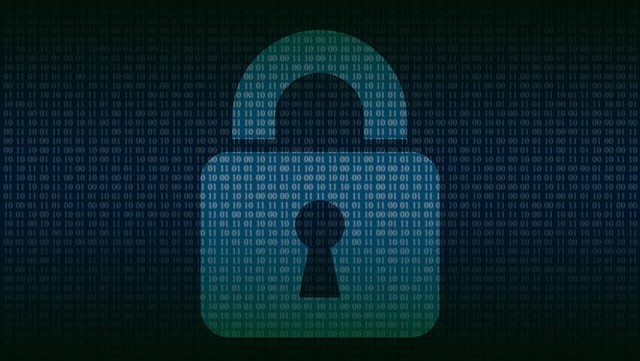The online gaming market as a whole has consistently grown in recent years, and it generated billions in revenue in 2023.
Compared to other business sectors, the gaming and financial service industries have experienced a higher number of cyberattacks. Hackers search for vulnerabilities in online gaming platforms’ systems. This allows them to easily acquire and exploit sensitive personal information for their gain.
Hackers frequently succeed in accessing this confidential data.
This can result in unlawful activities such as stealing people’s identities, carrying out illegal financial transactions, or breaching data systems. These security breaches can severely impact the reputation of the gaming platform and potentially lead to users losing their trust.
Thankfully, keeping yourself safe at either at casino site or a video gaming site is relatively simple.
Understanding why these platforms are a prime target and following some simple best practices will go a long way in keeping you and your details protected against cyberattacks.
Why Online Gaming Platforms Are Targets?
Gaming platforms have become lucrative targets due to their profitability.
The online gaming industry is expected to grow, with a recent study predicting user numbers will exceed 1.3 billion by 2025. Because of this growth, cybercriminals are targeting the vulnerabilities in the online gaming system to make money.

Online gaming platforms have a large database containing personal and sensitive user information. This includes gaming accounts, in-game assets, and personal banking data.
Attacks on these gaming platforms are usually directed at stealing digital goods and in-game assets that can be sold off. With online platforms, service disruption and financial fraud are the main motivations for hackers.
Another reason for cyberattacks is rather superficial, namely hacktivism. This is when hackers target the industry to gain recognition for their misdeeds.
Cyberattacks are not a new concept plaguing the online gaming industry. In fact, between 2021 and 2022, the gaming industry saw a 260% increase in online attacks. Both operators and players play a vital role in understanding and preventing the most common cyber threats to avoid falling victim to hacking.
1. Phishing
Phishing is a big problem for online gaming sites. It’s a sneaky way that hackers trick people by pretending to be a business and sending them fake emails. Hackers use this scam to mislead people into providing them with sensitive information. This could include sensitive passwords and credit card details.
DraftKings, a prominent online sports company, revealed that approximately $300,000 was taken from around 100,000 customer accounts. Since DraftKings was not hacked in any way, they suspect the hackers took stolen credentials via phishing to log into DraftKings player accounts.
2. Ransomware
Ransomware is a specific type of malware. This software encrypts files and demands payment to unlock them. In 2023, the online gaming giant Caesars Entertainment fell victim to a ransomware attack by the hacking group Scattered Spider.
This group exploited the weaknesses of their system. Caesars Entertainment eventually gave in to the hackers’ demands and paid the ridiculous amount of $15 million to get their stolen data and website back.
3. DDoS Attacks
DDoS attacks are a major cybersecurity issue for online gaming platforms. This threat floods a website with so much traffic and malware that it eventually takes it offline. This malware attack results in severe financial losses and damage to the site’s reputation, and makes customers lose trust and loyalty in the platform.
Online video gaming platforms are especially vulnerable to new forms of fraud. This includes spoofing, credential stuffing, and social engineering. However, the most common cyberattacks threatening the video gaming industry are:
4. Identity Theft
Payment fraud is the most prevalent cyberattack in the gaming industry.
Hackers can put money into video game accounts using stolen credit card information or create fake accounts using stolen personal information.
They manipulate the anonymous features of video gaming platforms to engage in criminal activities. This negatively impacts the gaming platform’s operations and financially devastates players in that it can affect credit scores and lead to false arrests.
5. Account Hacking
Cybercriminals gain unauthorized access to gamers’ accounts using stolen login details from data breaches or fraudulent emails.
Once they access a player’s account, in-game and personal data financial assets become vulnerable. Hackers can sell player data for profit, steal in-game currency, or convert in-game assets into sellable items.
6. Malicious Payloads and Malware
Computer and mobile games can put users at a much greater risk for online and personal security issues due to malware attacks or poorly designed security configurations.
Users could face malware on their devices if they download the incorrect file or an infected program. Malware is designed to steal personal information and can be highly detrimental to finances.
Minimizing Risks in Online Gaming
There are various methods that gaming platforms and their customers can use to avoid cyberattacks.
Advanced Fraud Detection Systems
1. Secure Cryptocurrency and Digital Payments
Secure cryptocurrency and digital currency payments are becoming increasingly important as more video gaming accept cryptocurrencies for gaming.
Many iGaming platforms have incorporated digital currency protection into their cybersecurity strategy. Cryptocurrency runs off blockchain technology. Crypto transactions are recorded on a distributed ledger. This makes it virtually impossible for hackers to defraud and manipulate.
2. Implementing Secure Authentication Methods
Using two-factor and multifactor authentication can significantly increase the security of video gaming player accounts. Using a combination of passwords, verification codes, or biometrics greatly reduces the chance of account hacking.
3. Using Encryption
Video game players and punters using gaming platforms’ sensitive data should be encrypted. Encryption involves scrambling readable text into code. Using a robust encryption protocol prevents hackers from reading sensitive and personal data. Combining 2FA or MFA further secures both platforms’ player data and information.
As the gaming sector is expected to experience massive growth by 2027, taking the necessary steps to safeguard these platforms is crucial. Safeguarding players and organizations can help attract and retain players, build trust, and prevent future cyberattacks from occurring.
